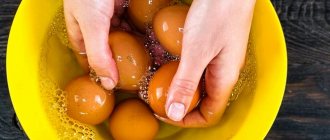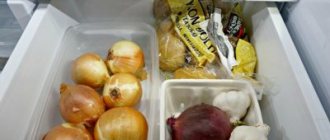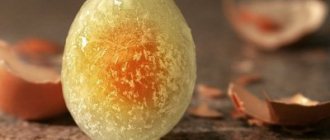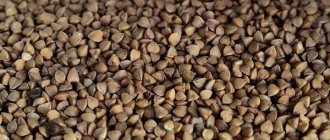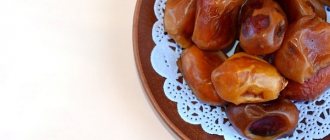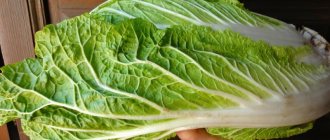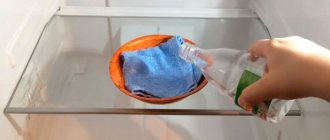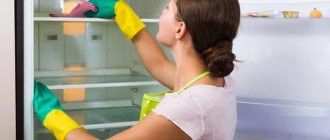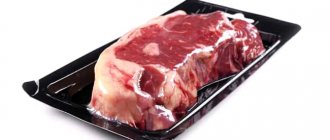A chicken egg is a common food product that any housewife, even a completely inexperienced one, can cook. At the same time, many of those who think that preparing egg dishes does not require special knowledge are mistaken. For example, not everyone understands why you need to wash eggs before breaking them. The women's website “Beautiful and Successful” found out that washing this product is a difficult topic, so today it invites its readers to get acquainted with all the nuances of the process.
What happens if you don't wash before cooking?
The main risk is the high probability of poisoning . The outer shell needs to be processed because salmonella actively multiplies on it.
There may also be chicken droppings on the shell. In its presence, colonization by pathogenic microbes is accelerated many times over.
Do not wash the product immediately before storing it in the refrigerator. But at the same time it is necessary to clean it from contaminants using alternative methods.
Before cooking, be sure to wash the eggs. They need careful washing and heat treatment .
Storage rules
A chicken egg is a healthy and nutritious component of many dishes. Most often it is purchased in quantities of 10 pieces. Therefore, if you do not plan to immediately use them in the kitchen, it is worth studying how to properly maintain them. This will not only preserve the taste, but also avoid possible health risks caused by consuming a spoiled product.
How and where to store it correctly
The best place to store it at home is the refrigerator. This is clearly hinted at by a special compartment with round cells; as a rule, it is located in the door. Place the eggs you just bought there, an almost reflex action familiar to everyone.
However, here lies the first little-known nuance: the door is far from the best place for storage in the refrigerator. Every time it is opened, there is a movement of air in the room. This negatively affects the shelf life of eggs, even in cases where the corresponding compartment has a lid.
Therefore, it is better to put in special cells only what will be used for cooking in the near future. The rest should be put in the vegetable storage compartment. It closes tightly and provides a stable, cool temperature that is optimal for keeping.
If there is no free space in the refrigerator, and you don’t want to use the freezer, then it is recommended to place them in the cells with the blunt end up. This is due to the air gap between the protein and the shell. Such placement will increase the shelf life of the product.
The storage period, subject to temperature conditions, is as follows:
- in the refrigerator – about 25 days, up to +20°C;
- in the freezer - several months.
You can check the freshness of the product by placing it in cold water. What floats up should not be eaten. Another clear sign of an expired product is a characteristic hydrogen smell.
Alternatives to washing
Wet processing has a negative effect on eggshells. She loses her protective layer. For this reason, eggs should not be wiped with a damp sponge before storing.
As an alternative, it is recommended to resort to dry cleaning of the shell . It is enough to thoroughly clean it with a damp sponge to remove dirt and chicken droppings.
An alternative to washing is to place the eggs in a container with salt. It disinfects the shell and extends the shelf life of the product. Instead of salt, you can use ash or calcined sand. They extend the shelf life of products.
Use of disinfectants
Dirty shells are the main reason why egg products are washed. We have already answered the question whether such a product can be stored.
In America, the goods undergo special processing. Disinfectants remove the shell and the shelf life is shortened to 7 days. Therefore, if you decide to use disinfecting liquids, monitor the shelf life.
Dry method
Before storage, a dry method of cleaning domestic eggs is allowed. After the chickens leave feathers, droppings and other debris in the nest. All these remains of the life activity of the hens stick to the shell. The product has an unaesthetic appearance. But the shelf life of untreated eggs in the nest is considered to be the longest.
To bring the raw product into proper condition, farm owners clean them manually from visible contaminants. It involves removing stuck feathers, droppings, and straw from eggshells.
Traditional methods
People most often wash eggs using detergents:
- Take the soap and dissolve it in warm water until foam forms. Wash the shells carefully. Wipe dry and place in container.
- There is a known method of processing with soda. Baking soda is dissolved in warm water and each testicle is also treated with a napkin. The washed eggs are placed in a container.
- Some housewives resort to vinegar. The essence of the method is to wipe the shell with a dampened cloth.
Remember that wet cleaning methods reduce shelf life. Therefore, eat it as soon as possible.
Are the rules different for chicken, quail and other types of eggs?
The rules regarding washing apply equally to all types of eggs. Chicken and quail shells quickly lose their protective layer after washing . The outer shell of quail eggs is especially sensitive to water. The protective layer is quickly erased when the shells of duck and goose eggs come into contact with running water.
Ostrich eggs have a denser shell. But even after washing it is quickly colonized by bacteria, which reduces the shelf life of the product.
Before storing any type of product in the refrigerator, do not wash it. It is enough to wipe them with a dry sponge to remove dirt.
Do I need to wash the shells before putting eggs in the refrigerator?
A freshly laid egg from a healthy bird is sterile. Three mechanisms operate in the oviducts of laying hens to maintain its microbiological purity:
- active phagocytic reaction;
- peristaltic contractions that remove microbes mechanically;
- release of the antiseptic lysozyme.
Adequate storage conditions help keep the product disinfected for a long time, despite the abundance of pores in its shell.
Nature has protected the embryo well, covering it with several membranes, each of which actively prevents the penetration of pathogenic agents.
Table No. 1
Functions of bird egg protective shells:
| Name | Description |
| Protein | Liquid protein contains several substances with a pronounced antimicrobial effect (lysozyme, ovomucin, ovomucoid, avidin, carbon dioxide). It has a high pH (about 9.2), therefore it inhibits the proliferation of pathogenic agents. |
| Subshell membrane | A dense film with a high content of lysozyme provides both mechanical and chemical protection of the embryo. |
| Shell | A hard but fragile shell that protects the contents from mechanical stress. |
| Cuticle | A thin film on the surface of the shell is formed from dried mucus, which covers the egg as it passes through the hen's oviduct. It contains lysozyme and has antimicrobial activity. |
The structure of the protective shells of the egg helps it cope with infection:
- bacteria;
- fungi.
Any interference with the structure instantly deprives him of this ability. When washing, the cuticle is easily damaged:
- opening pores for the penetration of microorganisms;
- increasing the rate of evaporation of water from the internal contents;
- enzyme degradation.
Note! According to regulatory documents, it is permissible to store washed food eggs for no more than 12 days.
Knowledge of the physiology of an egg eliminates the question of the need to wash it before storing it.
- If the shell is not too dirty, it is better not to disturb the integrity of the cuticle covering it.
- The origin of the product does not matter.
Washing a product before use is a common desire of a clean person.
- They try to clean the eggs before they are stored, because they are afraid of contamination with salmonella, other pathogenic bacteria and fungi.
- The proximity of dirty shells to other food products is unacceptable.
- Raw eggs should not be allowed to come into contact with food consumed without heat treatment - leafy greens, vegetables, fruits, bread.
Should shells be considered dirty?
From a physiological point of view, even when soiled with particles of droppings or litter, the shell is not dirty, since its contents are reliably protected.
At the same time, storing such products in their natural form in the refrigerator will lead to spoilage or contamination of neighboring ones.
Note! It is especially dangerous to leave eggs with droppings or wet spots on the shell for storage in the refrigerator.
Dry dirt can be easily removed by gently brushing it off with a stiff brush or knife.
How to extend the shelf life
To extend the storage period, chicken eggs can be slightly frozen by placing them at a temperature of -2 to 0 °C. In this state, they are considered edible for up to 90 days.
How to protect yourself from salmonellosis
Contamination of the product with microorganisms occurs in two ways.
- Endogenous infection of embryos occurs in the oviducts of sick laying hens. Even if signs of pathology are not visible externally, the bird can remain a carrier of the bacteria, passing this property on to new generations.
- Exogenous contamination is possible when the shell is contaminated with droppings, soil, as well as when it is collected, transported, or stored. In this case, pathogenic microorganisms enter the eggs through pores in the shells.
Infection is promoted by:
- high humidity;
- unsatisfactory sanitary and hygienic conditions for keeping laying hens;
- temperature fluctuations.
This is interesting!
- On one square centimeter of the surface of a clean shell, about several hundred pathogenic bacteria survive.
- Their number on a contaminated shell can increase sharply to hundreds of thousands, or even millions of cells.
To protect against infection:
- bird eggs are used for food only after heat treatment;
- Each type has its own cooking standards.
Salmonella is a tenacious microorganism that is resistant to adverse environmental influences. She practically does not suffer:
- from low temperatures;
- smoking;
- salt;
- In indoor conditions it multiplies quickly.
When cooking, you need to take into account that even heat treatment does not get rid of pathogenic bacteria instantly:
- at 60 °C salmonella dies in 60 minutes;
- at 80 °C, 2-3 minutes are enough to disinfect a dish.
Additional Information. Acetic acid at a concentration of 6% frees the product from the microbial component in a few days.
As preventive measures to prevent infection, Rospotrebnadzor specialists recommend following a few simple rules when choosing goods and preparing them.
They are especially significant when working with dishes made from animal ingredients.
- You need to purchase goods only from trusted suppliers. It is advisable to do this in those retail outlets where sellers are ready to provide veterinary certificates and other documentation at any time.
- The expiration date, shell integrity, and the presence of other defects are checked without leaving the counter.
- After contact with raw foods, hands, dishes, cutting boards, table surfaces are washed with hot water and soap.
- The products are thoroughly washed and processed in accordance with the instructions.
- Fresh raw ingredients are isolated from cooked ones.
Note! Eating raw eggs is hazardous to health.
- If you want or need to include such a product in your diet, it is better to focus on products from quail farms, because Keeping birds in cages in the absence of any contact with natural foci of infection significantly reduces the risk of contamination.
- Children and people with weakened immune systems should not be exposed to danger.
How and where should it be stored?
The product is best stored in the refrigerator only. In this case, you must adhere to the following recommendations:
- keep the product in the lower compartments of the refrigerator;
- store closer to the far wall of the refrigerator;
- place products in sealed trays with the pointed end down;
- Set the temperature inside the refrigerator to 4°C.
If it is not possible to store the product in the refrigerator, you can keep it at room temperature. But at the same time it is necessary to observe the temperature regime.
Egg whites and yolks should be in a dry paper or plastic container under a tight lid. They must be kept in a dark and cool place. The room temperature should not exceed 20°C. Humidity should be at 85-88%.
The refrigerator is also unsafe. Do not store raw and prepared foods next to each other
You might think that the last bastion of safety in the kitchen is the refrigerator. But no. It turns out that there are bacteria that reproduce best at low temperatures: these are campylobacter and listeria.
Campylobacter is one of the most common causative agents of intestinal infections with vomiting, diarrhea and fever. Listeria can cause not only intestinal infections, but also meningitis and other diseases.
These bacteria can come from raw or undercooked meats, soft cheeses, prepared salads, fresh vegetables and fruits.
To avoid the proliferation of these bacteria, it is necessary to wash the refrigerator more often, throw out expired foods, do not store raw and cooked foods nearby, and also use containers and storage bags to avoid contact transmission of flora. If food is exposed, sooner or later, when you move it, it can touch and allow bacteria to spread.
***
Would you like us to break down other hygiene rules? What other dangers are there in the house? What can you get infected from pets? What microorganisms can be ingested while swimming in lakes and rivers? Write in the comments what topics interest you.
Other tips
To increase the shelf life of products, you must first wrap them in paper or newspaper. Then you need to put each egg in a box. It is better to use containers with cells. The packaging must be placed in a cool place. It is important that the sun's rays do not fall on it.
Before purchasing a product, you must carefully check its quality . Eggs with damaged shells should not be taken. Their shelf life is half as long. Also, such products are more quickly colonized by bacteria. They should be eaten immediately after purchase and only after careful heat treatment.
Before eating eggs directly, they must be washed with soap and running water. It will wash away not only dirt, but also the remaining disinfectants that manufacturers apply to products.
For consumption, it is recommended to choose dietary yolks with whites. They have a shorter shelf life, but they are of the highest quality.
It is also necessary to follow other recommendations, including:
- Throw away the removed shells immediately.
- Avoid contact of the product with other food, do not store it in containers with foreign odors.
- Buy products from small manufacturers who have higher quality products and a reliable control system.
Do not keep the product in the refrigerator door compartment. The temperature there is 4°C lower than in the refrigerator itself. Because of this, the whites and yolks will be stored much less. Their quality is also negatively affected by frequent opening of the refrigerator door.
Why can't you wash eggs, what is the reason?
The question of why raw eggs should not be washed is controversial. Even scientists have not yet come to a consensus.
Many people prefer to wash raw eggs. And it's not about their attractiveness. The main danger is salmonella. It lives on the shell and can enter the human body.
But the cooking procedure kills the dangerous parasite. Therefore, there is no need for washing. However, experts say washed eggs are safer. We'll look into it further.
Cooking in boiling water will destroy salmonella and remove dirt from the shell. If you want to cook fried eggs in a frying pan, then rinse the eggs under running water before cooking; however, this method is less effective than boiling.
Is it possible to wash eggs before storing?
Products intended for storage cannot be washed. The shelf life will be significantly reduced. This is the main danger of the procedure.
The fact is that the shell is equipped with a special shell that protects against the penetration of bacteria.
If you intend to store the product, do not wash it. Do this later, just before use.
But keeping dirty eggs in the refrigerator seems like an unwise decision. It turns out that there are ways that allow you to maintain the attractive appearance of the product and do not affect the shelf life.
Poll: Do you wash eggs before eating? (vote to see statistics)
Not really
How to keep eggs fresh for a long time
Another serious issue is preservation for the winter. The general condition is that it is desirable that these are domestic eggs collected in the fall (preferably in October). There are several time-tested recipes.
Grease
Any edible fat will do, ideally rendered pork lard. Eggs with such a coating are placed in a container with dry filler. It is important that they do not touch the shell. Place the container covered with a cloth in a cool, dry place. The eggs in it will be suitable for consumption for the next three months.
Lubrication with paraffin or wax
A similar method is to use a mixture of melted beeswax, paraffin or rosin. It is applied to the shell using a soft cloth and placed in the refrigerator. It can be stored in this form for about six months.
Potassium permanganate solution
Alternatively, you can dissolve a tablespoon of potassium permanganate in a large saucepan. Then the eggs are placed in a container, kept for about three hours, dried, wrapped in thick paper and put in a cool, dark place.
Note: Eggs must be thoroughly washed before soaking.
Fish gelatin
Among workers in the fishing industry it is known as “fish glue”. The method is rather exotic, since high-quality gelatin is simply not available, and the effectiveness is no different from coating eggs with ordinary fat.
One of the advantages is that this coating strengthens the shell due to moisture. This reduces the likelihood of drying and cracking on the surface.
The main thing is to remember that washed eggs are stored even in the refrigerator for only a few days, observe the storage conditions and follow the recommendations of SanPiN.
How to get a good result after washing?
The optimal shelf life for washed hatching eggs is 24 hours. This is explained by the fact that due to non-ideal technical conditions and subjective and objective reasons, the use of such a washing process does not always allow 100% disinfection of all hatching eggs. And with longer storage, even at low temperatures in storage, microflora can multiply not only on the surface, but also inside the egg.
If you had to wash a lot of hatching eggs, you should lay them exclusively in separate cabinets, and if there is a minimum quantity, in trays located below. This will reduce the risk of contamination from cuffs for other incubation materials. A Tumak is a rotten, spoiled egg, and if it ruptures there is a risk of infecting up to 140 neighboring eggs.
Many poultry farmers always check their cuffs. It is important to do this at the time of transferring the eggs for hatching. If many cuffs are found, an inspection is also carried out during combined egg cooling.
Whether or not to wash eggs before placing them in the incubator is everyone’s business. Some people consider it unacceptable to lay eggs whose shells have feathers, dirt or other defects. Others calmly treat contaminated eggs, being confident that this will not in any way affect the hatchability of the chicks.
0
0
Copy link
Dry clean eggs
The best way to wash eggs is to dry peel eggs. To do this, use something dry and slightly abrasive to scrub away any dirt or feces until the egg comes out clean. With this method, you do not use water or any disinfectants. Use a sanding sponge, loofah, fine sandpaper or abrasive pad to dry-scrub the eggs. Disinfect your sponge or washcloth periodically, or throw out your old one in favor of a new one.
This method preserves the natural antibacterial coating, called the “bloom.” Rinsing the eggs with water removes plaque and encourages bacterial growth.
The main bacteria you want to avoid with eggs is salmonella, which is foodborne and can lead to food poisoning. You are only at risk of getting a salmonella infection if the bacteria is present on the egg shell and you intend to eat the egg raw. Some popular dressings contain raw eggs, such as fresh mayonnaise, hollandaise sauce, and Caesar dressing. However, cooking kills bacteria.
Exposure to pollution
The degree of contamination of eggs is influenced by many factors, but the main ones are the type of poultry housing (floor or cage), the stability of the equipment on the farm and the health of the birds. For the production of waterfowl hatching eggs, the problem of shell contamination is even more pressing.
If you place very contaminated eggs in the incubator, this can reduce the hatch rate of chicks. It is also possible that this will lead to eggs containing embryos that already have some developmental abnormalities. In addition, losses from contaminated hatching eggs will be much greater, since their price is much higher than the cost of chicken eggs.
Keep the coop and chickens clean
Perhaps the easiest way to make sure your eggs are clean is to keep your nesting boxes clean. Also, check nest boxes early and often. Remove the eggs as soon as you find them.
Make sure there is a clean layer of straw or bedding for the falling egg. If the layer is too thin, the egg may fall onto a hard surface, crack, and yolk getting everywhere. Keep in mind that hens can also throw straw out of the nest, so replace it regularly and remove droppings as you go. Also, don't encourage your chicks to sleep in nest boxes. This is the main cause of the stern problem.
If you notice that one of your chickens has a dirty vent area (where the eggs come out) or those feathers seem dirty, it's time to give your chicken a bath. Just as you would wash a cat or dog, place the bird in a bathtub or basin, use warm water, a mild pet shampoo, and clean the dirty area. Dry the bird with a towel. For your safety, use rubber gloves when washing and disinfect your sink with a mild bleach solution.
Are boiled ones safer?
When cracked, there is a risk of bacteria entering the egg. Washing with soap alone will not help here. Cracked eggs can only be protected by boiling. From the moment they boil, they need to be cooked for 15 minutes.
Cracked eggs can only be protected by boiling.
When frying, the temperature must exceed +65 °C. When cooking eggs in a bag, they are fried on both sides, covered with a lid to ensure complete heating.
Why do you wash eggs after purchasing?
Many housewives make one mistake: after buying eggs in the store or at home from dear grandmothers, when they come home, they wash them. This is done not only for the love of cleanliness, but the main reason is the fear of a serious salmonella infection. This danger comes from a chicken that was improperly kept and fed. The laid eggs themselves are not dangerous, but this infection can be on their surface, especially if there is chicken droppings on them. Since the shells can be contaminated with this serious infection, many housewives make the same mistake: washing the shells.
In Europe they are seriously struggling with this problem. Before eggs are put on sale, their shells undergo a disinfection procedure. These eggs are not very good to use. Because it becomes unprotected from internal infections. The shelf life is also significantly reduced.
